Radomir Andrić
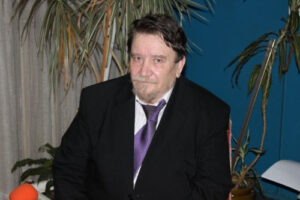 Radomir Andrić was born in 1944 in Ljubanje, near Užice. He finished high school in Užice as well as Kruševac, and graduated from the Faculty of Philology in Belgrade. More than 40 of his poetry books have been published so far, among them: Sunce u vodenici, Večernji krčag, Šumska crkva, Karpatsko umiljenije, Bunari Radoša Modričanina, Svane li, Neustuknica, Često rušena kućo, Kakva počast, Ispod snega, Zgon, Noćni plivač, Vučica na prtini, Rujno, Čarno dleto, Rumunska ikona, Isto i obrnuto, Pohvala smehu, Večera na savskoj lađi, Beli izvor, Poleteše ptice lastavice, Zarno vitlo, Ka drugosti, Ključne kosti, Sanopis vode, U palati pravde, Svikavanje na levitaciju, Osim jedne stvari…;
Radomir Andrić was born in 1944 in Ljubanje, near Užice. He finished high school in Užice as well as Kruševac, and graduated from the Faculty of Philology in Belgrade. More than 40 of his poetry books have been published so far, among them: Sunce u vodenici, Večernji krčag, Šumska crkva, Karpatsko umiljenije, Bunari Radoša Modričanina, Svane li, Neustuknica, Često rušena kućo, Kakva počast, Ispod snega, Zgon, Noćni plivač, Vučica na prtini, Rujno, Čarno dleto, Rumunska ikona, Isto i obrnuto, Pohvala smehu, Večera na savskoj lađi, Beli izvor, Poleteše ptice lastavice, Zarno vitlo, Ka drugosti, Ključne kosti, Sanopis vode, U palati pravde, Svikavanje na levitaciju, Osim jedne stvari…;
He is the author of a few books of poetry for children: Čavke postoje zbog slova Č, Pod zlatnom leskom, Pitalica sa Zvezdare, Kozje grozje, Izmišljotina, Ptičje mleko, Gledalice; also, he is the editor of many anthologies, selections of poems, literary magazines, and other cultural publications and radio programs. His literary work has been translated into English, Russian, French, Romanian, Macedonian, Spanish, Italian, Czech, Polish, Azeri, Belarus, Greek, Bulgarian, Slovak, and other languages. Radomir Andrić received a significant number of Serbian as well as international awards for his literary accomplishments and great contribution to culture.
To mention but a few: Rade Drainac, Isidora Sekulić, Milan Rakić, Nagradu Kruševca, Belovodsku rozetu, Zlatni Orfej, Neven, Ravaničanin, Filip Višnjić, Oktobarsku nagradu Beograda, Zlatni beočug, Zlatnu značku KPZ Srbije, Povelju Morave, Prsten despota Stefana Lazarevića, Vitezovu nagradu, Srboljub Mitić, Vitez poezije Čajetine, Povelju Karađarđe, Pečat kneza Lazara, Paun Petronijević, Jefimijin vez, Vukovu nagradu, Vasko Popa… He is a member of the ASLA Academy (Oradea, Romania), Slavic Academy of Literature and Art (Varna, Bulgaria), Mediterranean Academy “Brothers Miladinovci” (Struga, Macedonia), and a member of honor of numerous literary associations worldwide. Radomir Andrić is the president of the Association of Serbian Writers. He lives in Belgrade and, as he himself often says, many a place at the same time.
Photos
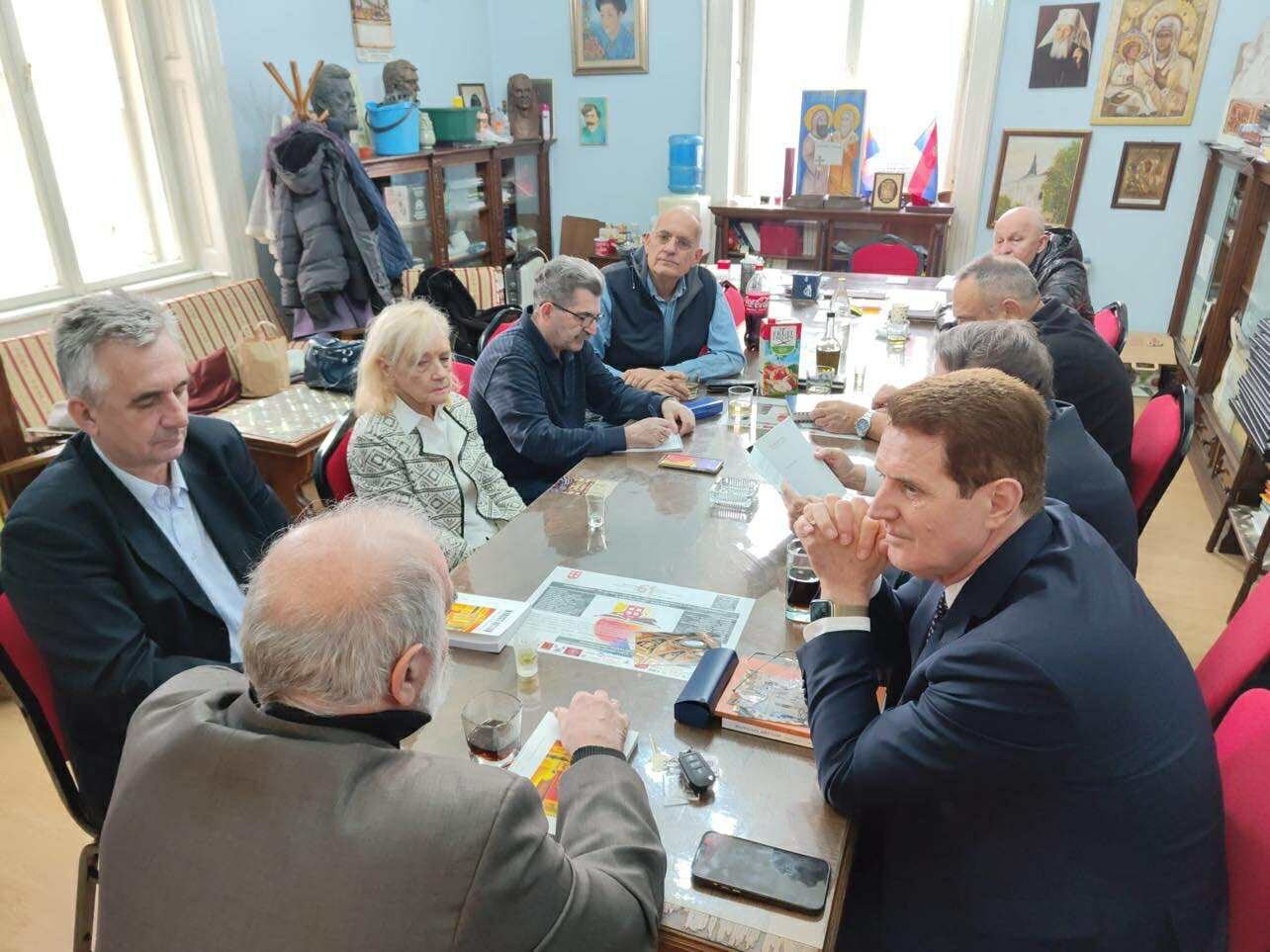 |
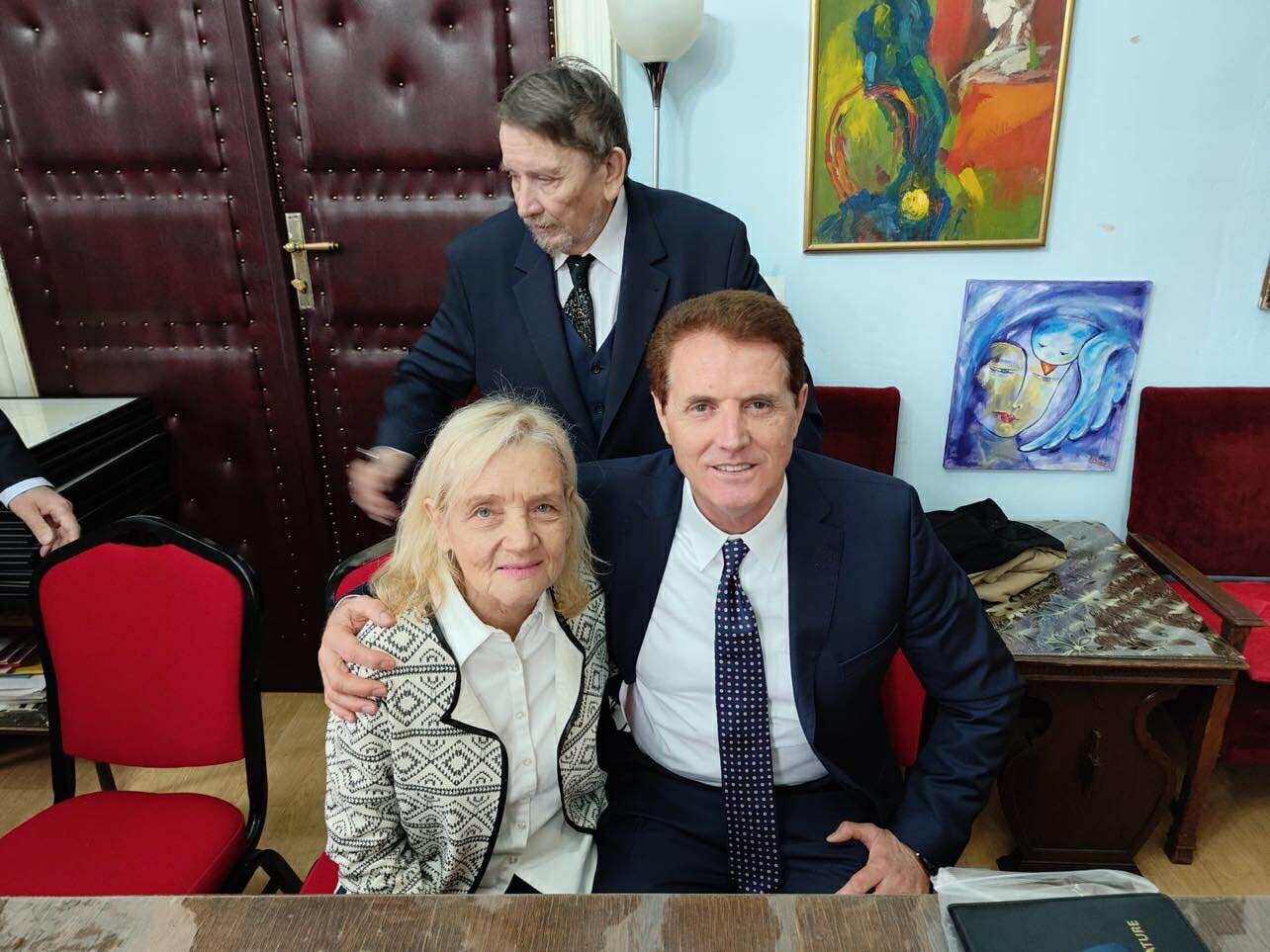 |
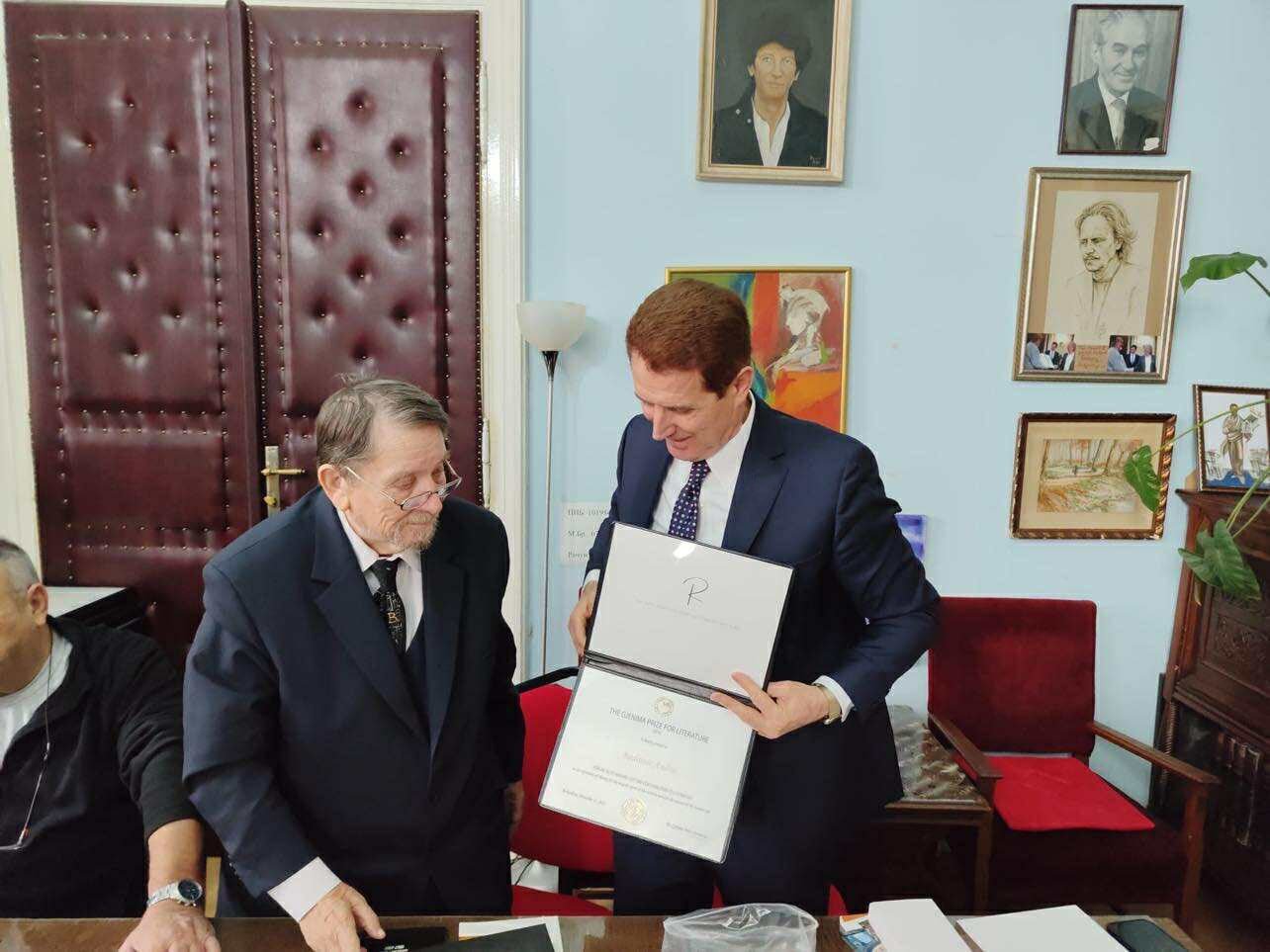 |
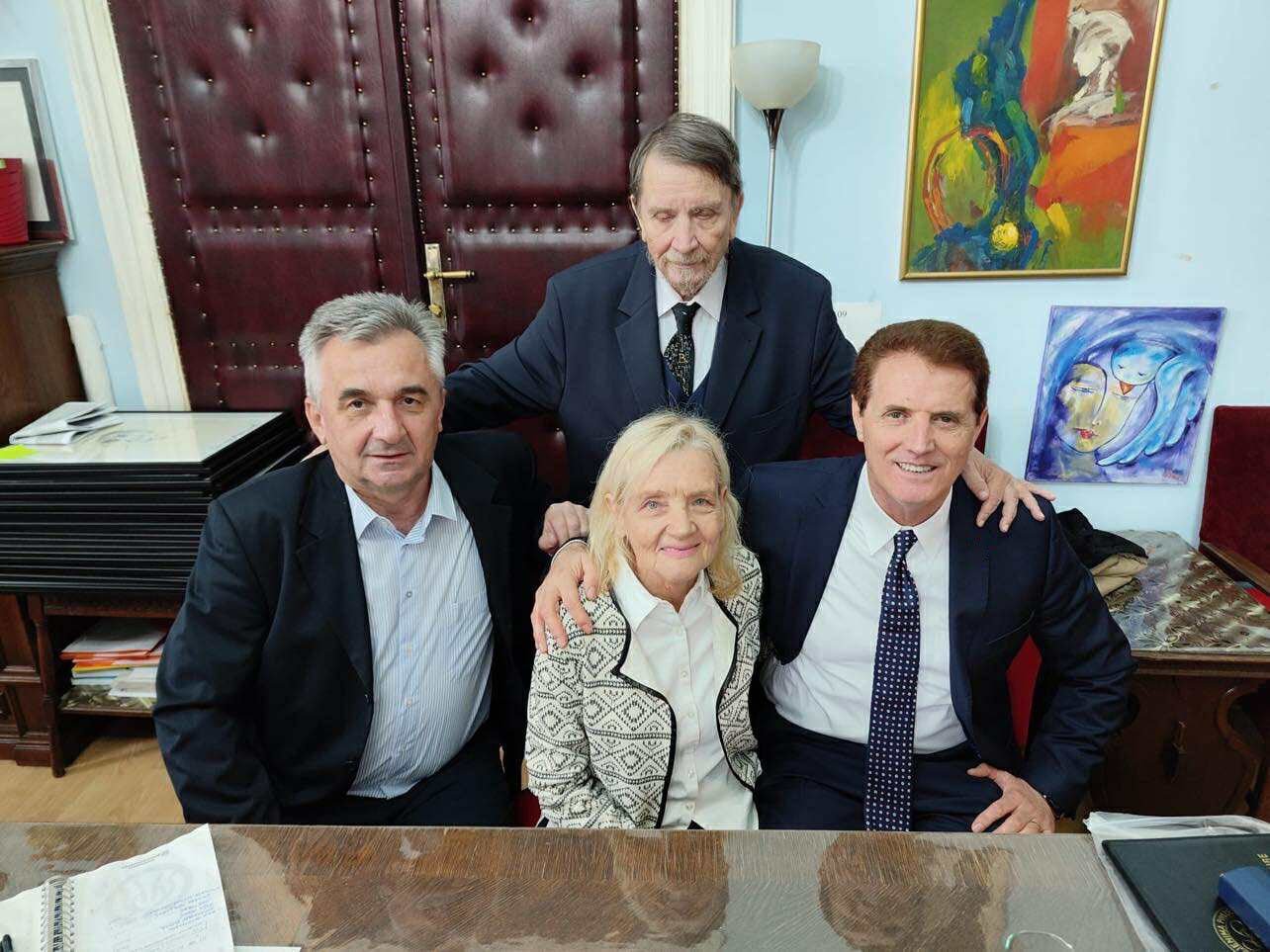 |
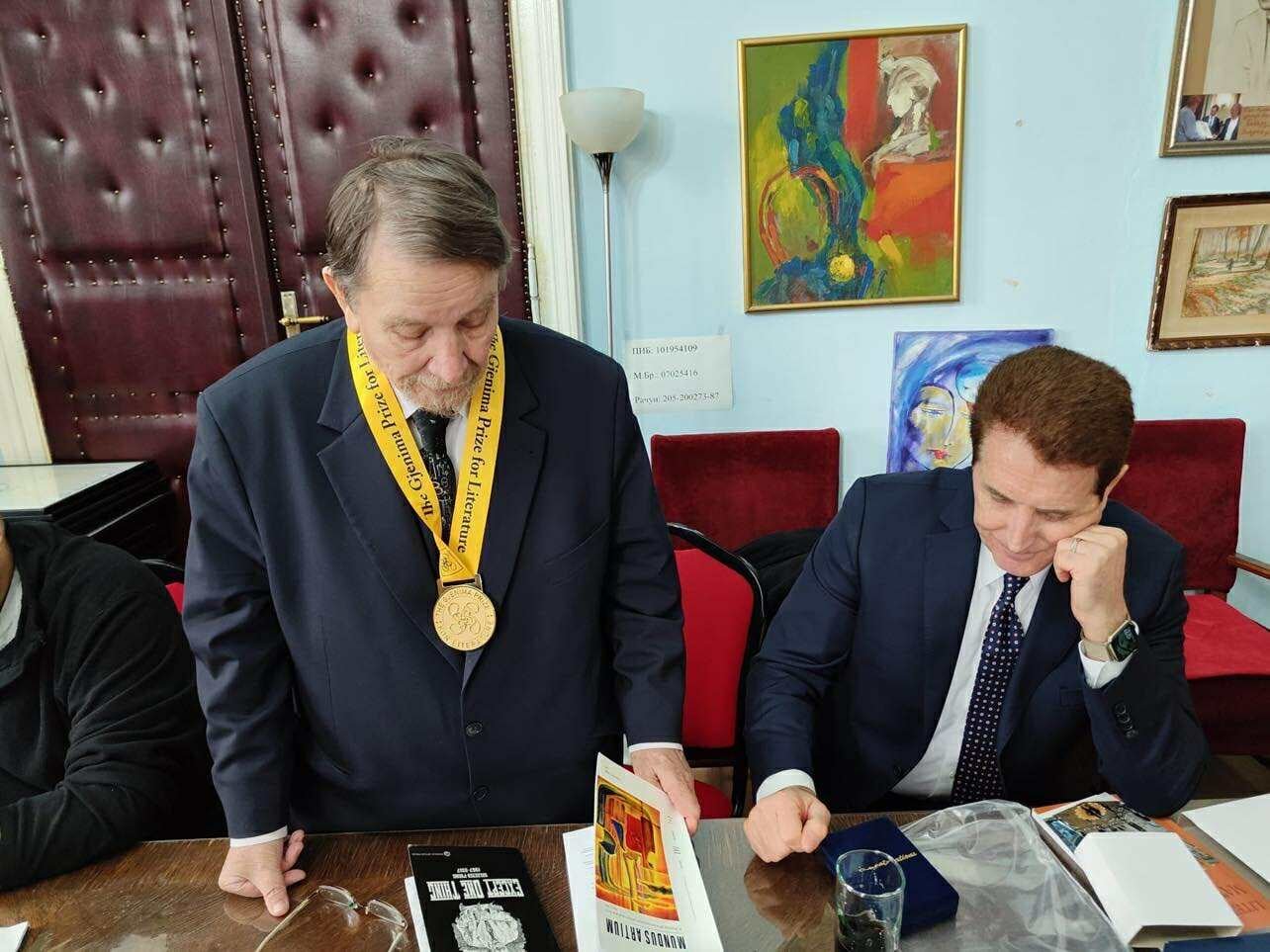 |
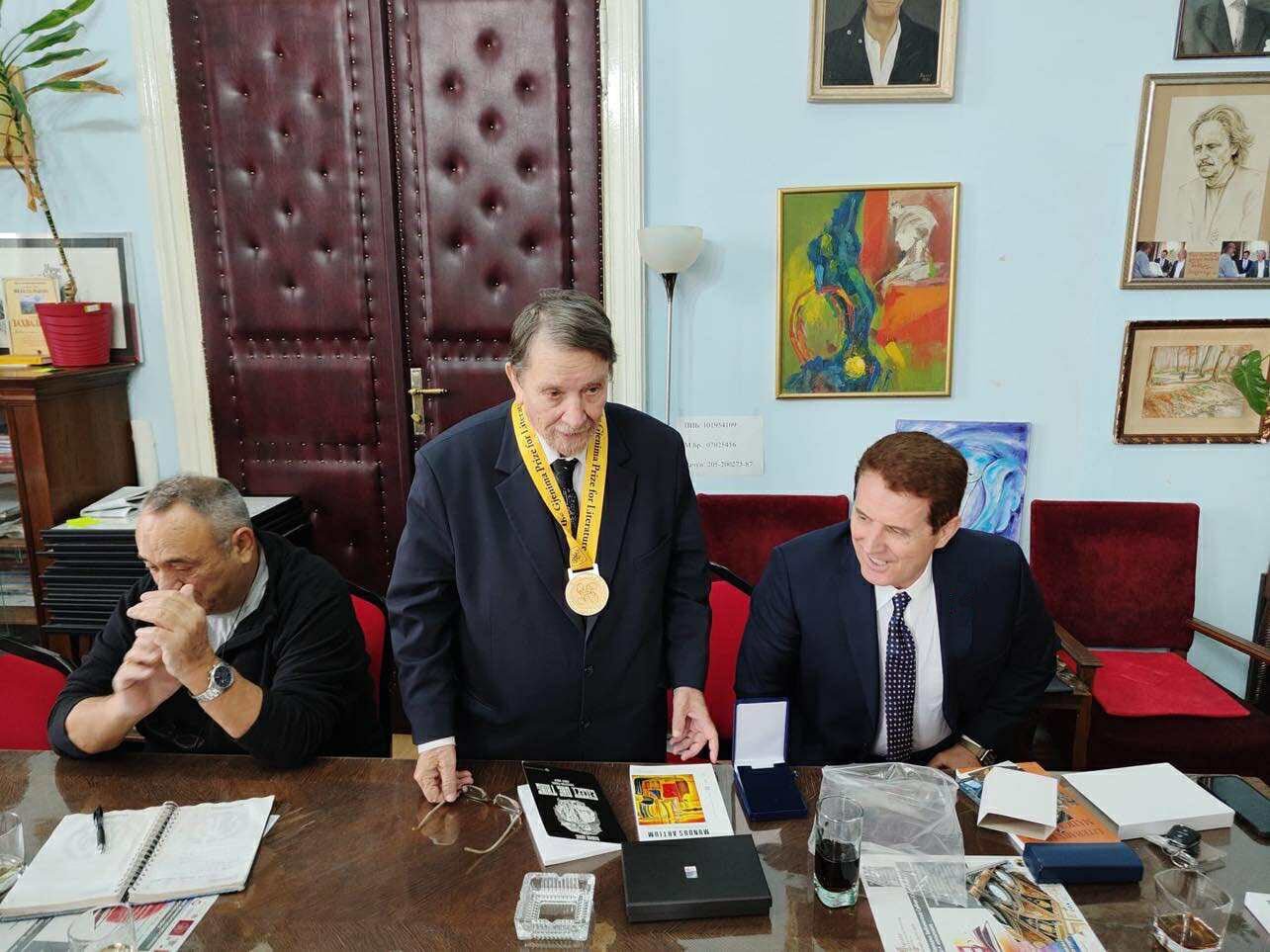 |
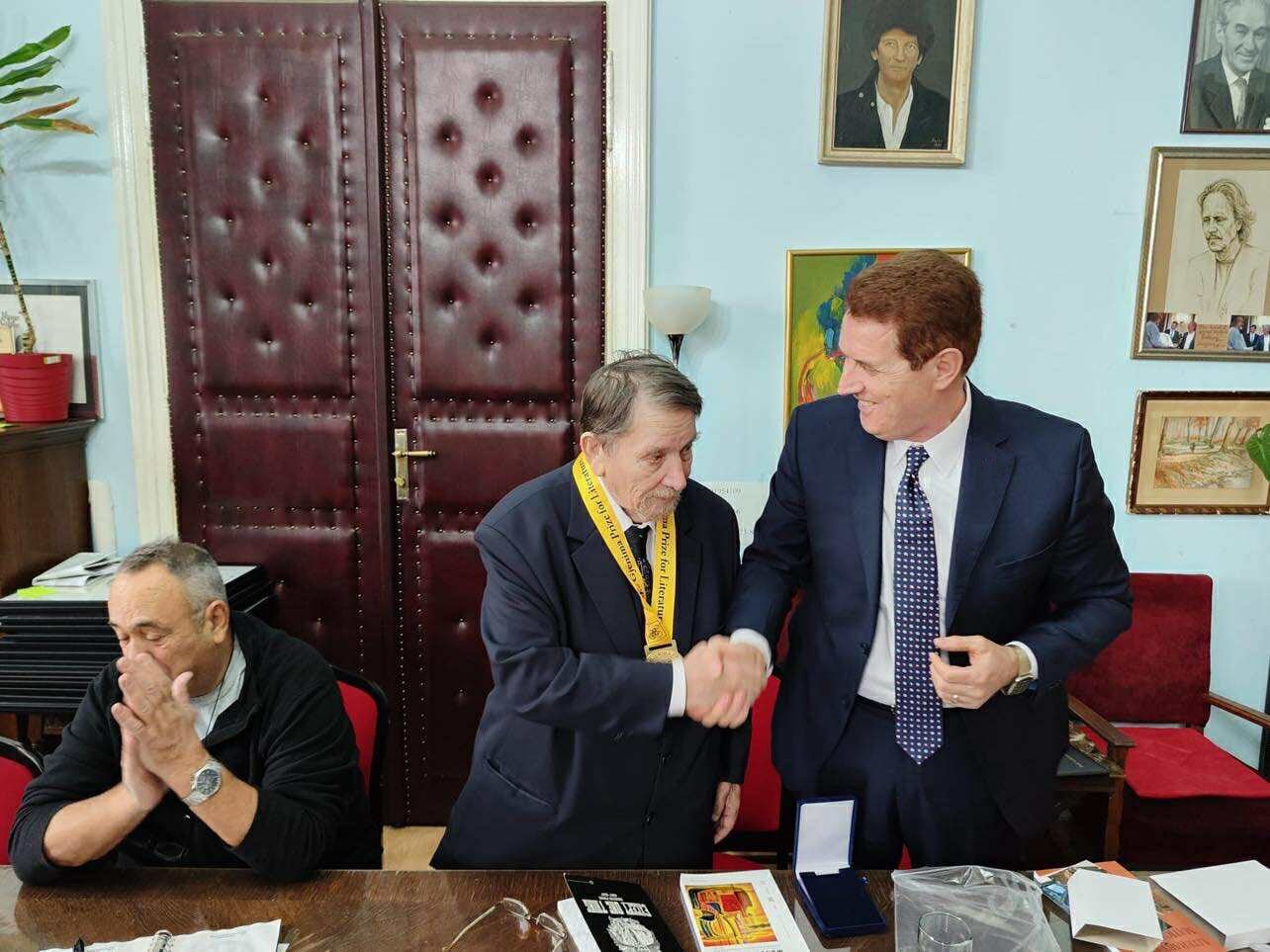 |
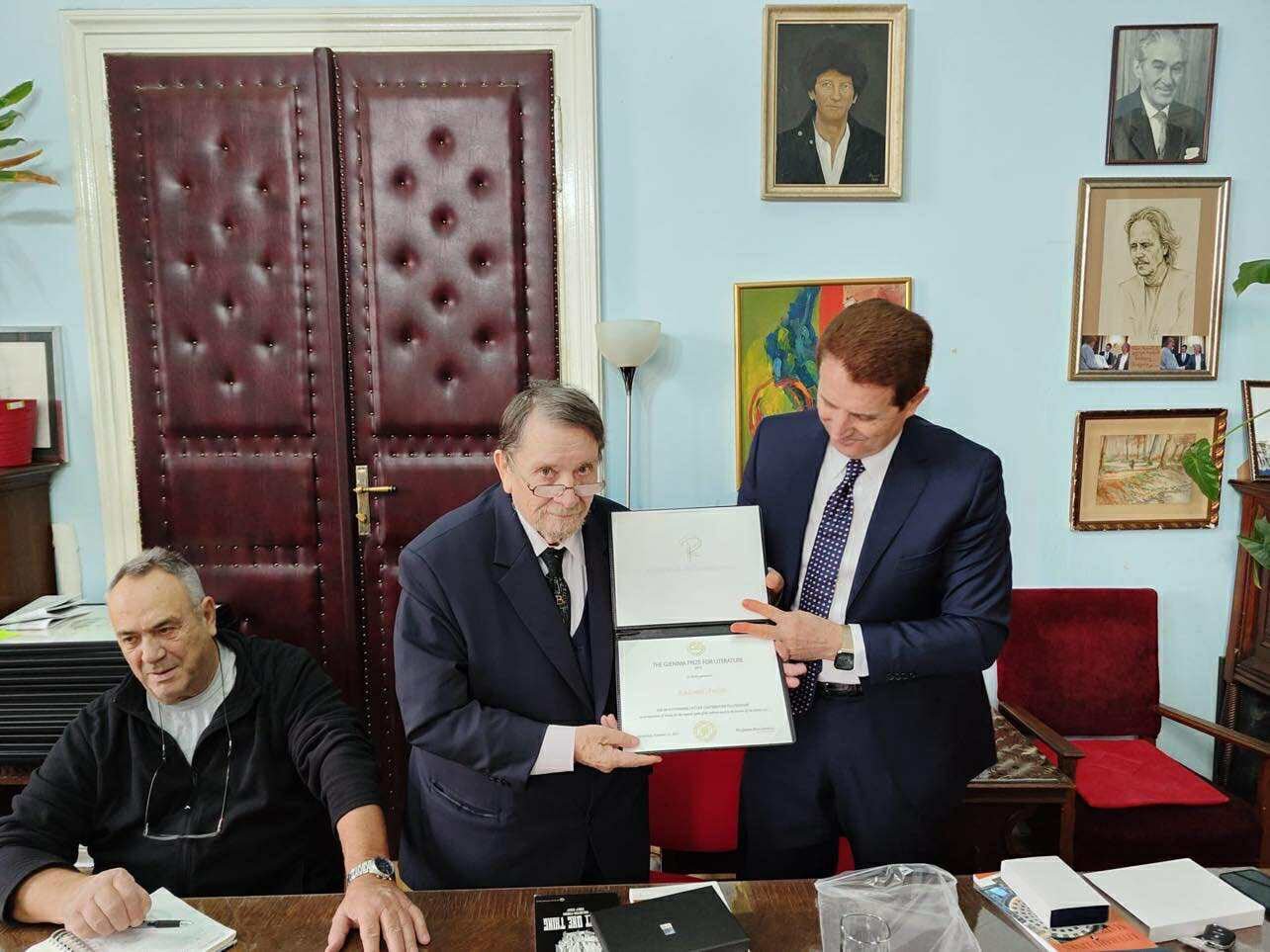 |
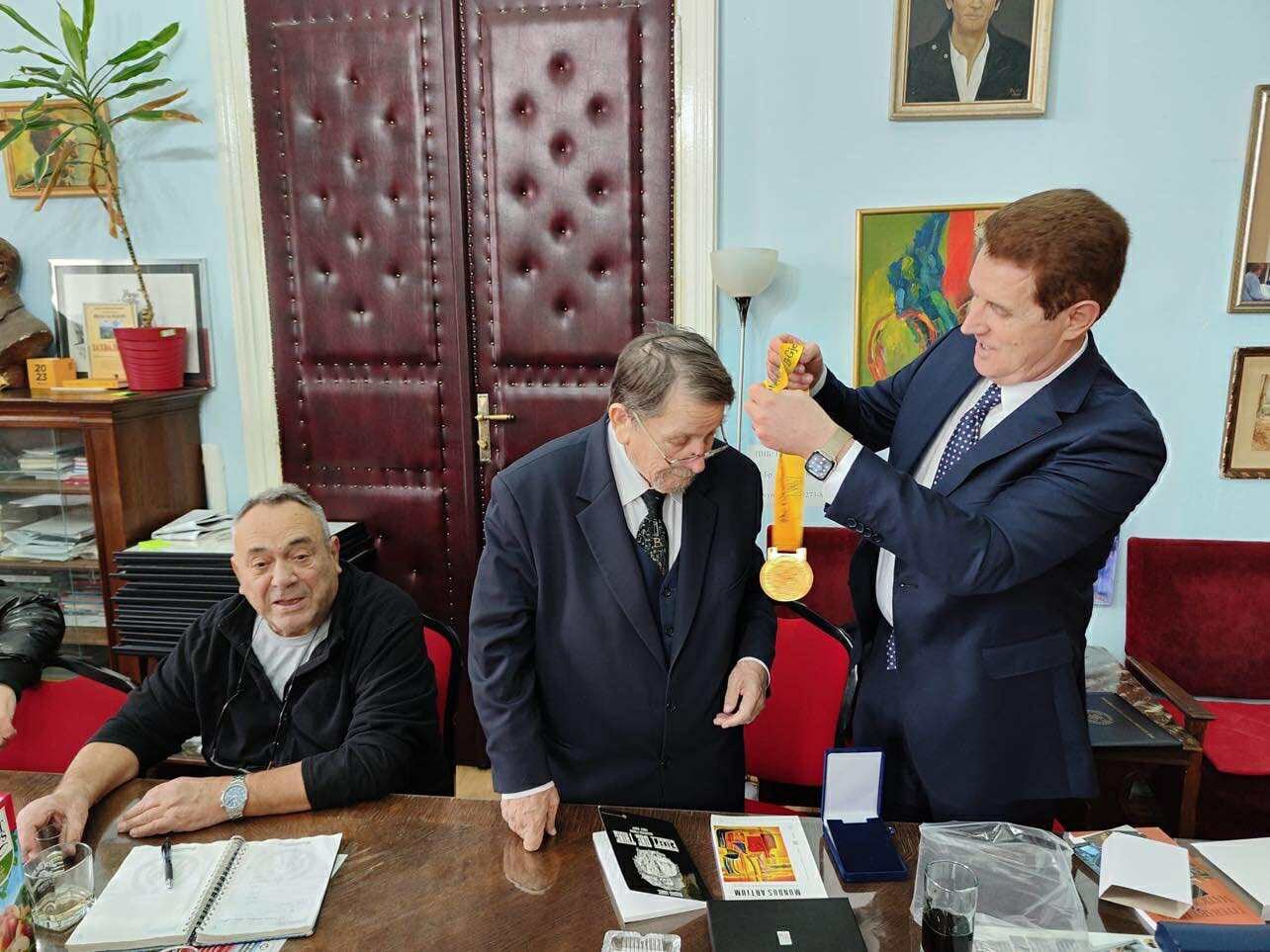 |
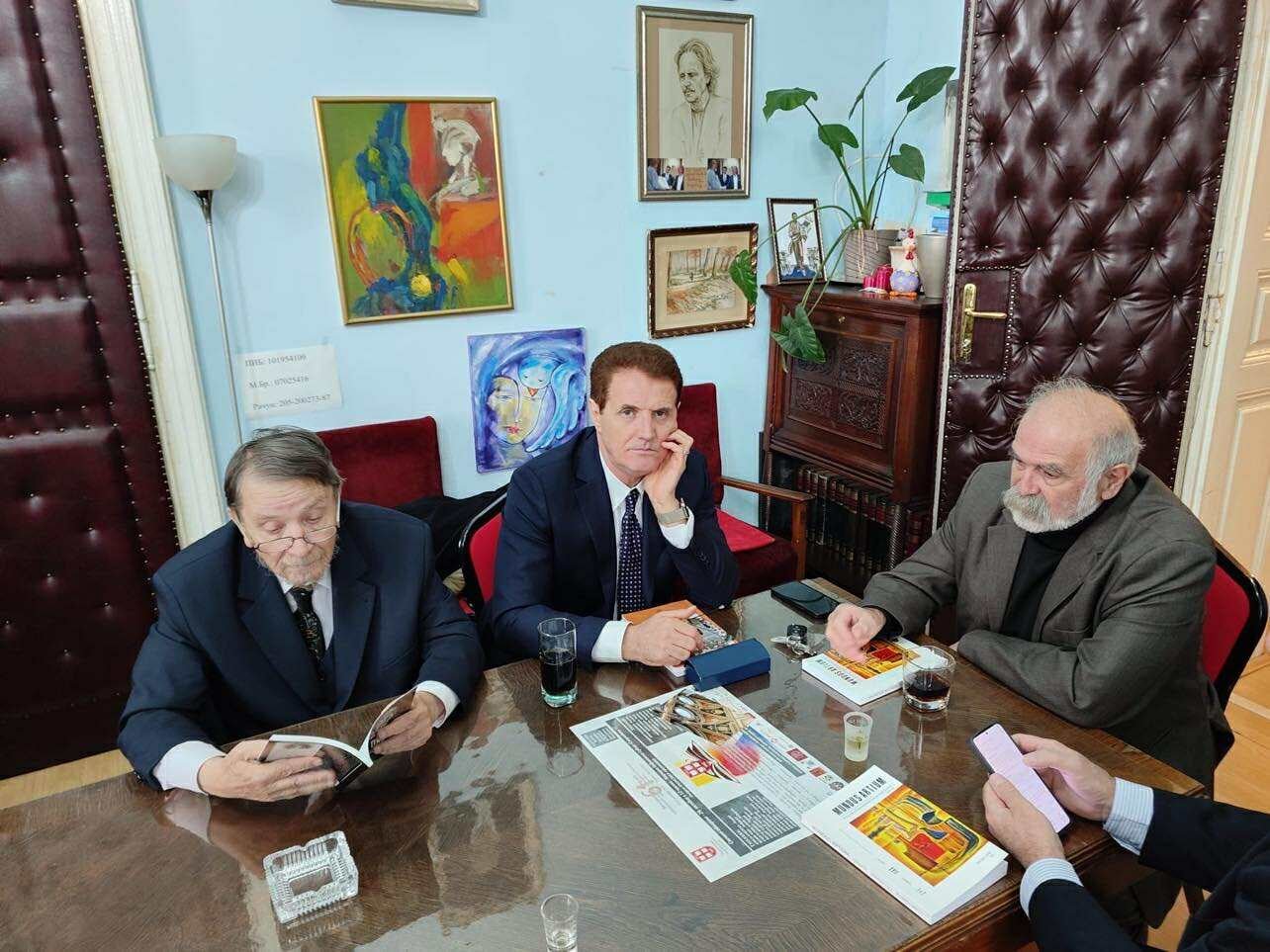 |
Publication(s)
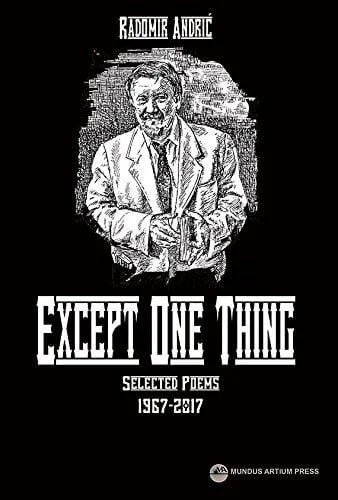 |
